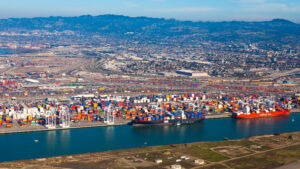The Danish-based global bunker supplier, Monjasa, extends its local maritime logistics to include a monthly capacity of 5,000-7,000 metric tonnes of second-generation biofuel blends, primarily B20 and B30.
Most recently, Monjasa’s efforts have been focused on Latin America and the Colombian port of Cartagena.
Monjasa already supplies traditional marine fuels in Colombia and the company now says that from the Colombian port of Cartagena its maritime logistics can accommodate a monthly capacity of 5,000-7,000 metric tonnes of second-generation biofuel blends.
A B20 biofuel blend consists of 20% Fatty Acid Methyl Ester and 80% Very Low Sulphur Fuel Oil.
“Together with our partners, we have enabled biofuels supply not only for the Colombian market, but potentially also for the main ports across Latin America, including the Panama Canal. Looking at the current demand, it is the large container lines who are showing concrete interest and driving demand for biofuels in this market,” said Camilo Angulo Ferrand, trading manager Americas.
The fuel supplier Monjasa also provides biofuel options in other parts of the world, including this summer’s first B24 biodiesel supply for a Very Large Gas Carrier (VLGC) off Dubai.
This operation was the result of new collaboration across the supply chain involving Astomos Energy, Inpex Corporation and Monjasa, with the product being blended and supplied by Monjasa’s locally deployed 9,600-dwt tanker, Monjasa Shaker.
In Asia, Monjasa recently revealed new maritime logistics adaptable to biofuels supply in the Port of Singapore. This new operation will consist of a total of three vessels by the end of 2023.
In total Monjasa supplied 6.4 million tonnes of marine fuels in 2022.
“Although our current data indicates that the demand for biofuel blends is only emerging slowly, we keep preparing our global supply chains, fleet logistics and organisation for the fuel mix of tomorrow,” notes Jesper Nielsen, group responsibility director.



